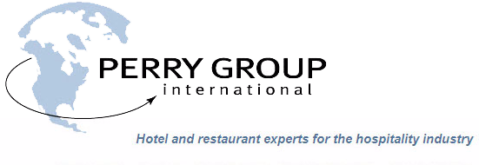The food safety management challenges this time of year are holiday menu traditions and the larger numbers of people who eat out in restaurants. Menus that include poultry, such as turkey, and recipes that are laced with nuts, along with other potentially allergy driven foods, can be especially important to watch from a food safety perspective. Federal statistics also report that more than one hundred thousand Americans will end up in hospitals with some type of food poisoning. In addition, 1 out of 6 may get sick from a food borne illness this year alone according to those findings. However, adhering to simple procedures and good food safety management in your foodservice operation can easily avert a guest sickness and injury in the first place: 1. Follow Proper Storage and Thawing – Keep meats separate from other fresh foods in your coolers. Store frozen products that are to be thawed prior to roasting, such as whole turkeys, on the lower shelf so any liquids from the meat does not drip on to and contaminate other items in storage. 2. Avoid Cross Contamination – If your staff wears latex or plastic gloves to handle food, they should still wash their hands in between their handling of raw meats, fresh produce and other food items. Gloves may keep their hands covered, but the source of bacteria still exists on the outside. 3. Use Refrigerators for Cool Down – Remember the time and temperature rules for safe food handling. Keep it hot (either above 140 degrees) or cold (below 45 degrees) and less than two hours in between these temperatures when holding food for consumption. Restaurant experts recommend that it is best to store food items that were just cooked, such as roast turkeys, immediately in the refrigerators to be cooled down afterwards. 4. No Stuffing the Bird – Food borne illness arising from “salmonella” bacteria is one of the most common in meats such as poultry. Stuffing a raw chicken or turkey will potentially contaminate those ingredients if the bacteria exists inside. 5. Cook to Proper Temperature – The “internal” temperature must be at least 165 degrees to insure killing off any bacteria in salmonella prone meats such as poultry. The problem is compounded if you are slow roasting items such as turkeys and chickens. If the cooks forget to check the internal temperature, because they are in a hurry due to a sudden meal rush, you may be giving your customers a good dose of food borne illness as part of the trimmings. 6. Look for Bones – If your restaurant is serving menu items that a customer expects to be boneless, such as a turkey pot pie or croquette, make sure staff are trained to look for and remove bones during preparation. Customers can easily swallow an unseen bone and choke. 7. Sanitize Equipment – During high service times as a result of the holiday rush, staff may slice portions of meats, cheeses and vegetables such as tomatoes over an extended period of time using the same slicer. Remember to clean and sanitize slicing equipment after each use since these types of equipment are especially prone to food bacteria from different sources and cross contamination is common. 8. Beware of Food Allergies – Certain menu items may contain ingredients that some customers have an allergic reaction to if eaten. Many festive breads and holiday desserts contain nuts. Walnuts in particular can cause a severe reaction, like choking and swelling. Be sure to educate staff what your recipes contain so they can advise customers, who may be allergic, what a particular dish contains. Also “celiac” disease affects a number of Americans. If it is not entirely gluten-free – do not promote it as so. 9. Apply Safe Deep Fry Procedures – Don’t blow up the bird! Some holiday traditions fry the meat instead of roasting it. An untrained and inexperienced cook may deep fry a frozen whole turkey, only to have it explode, potentially causing him or her serious burns, and setting the entire restaurant on fire as well. 10. Check Produce and Water Sources – Make sure you buy your produce from credible suppliers. Alfalfa, green onions and watermelons are major sources of the Ecoli bacteria due to improper farming and distribution procedures in some locations. It is very important to inspect and thoroughly wash vegetables during preparation and avoid using any produce that may be contaminated. Restaurant management tips also suggest checking the water source along with cleaning and sanitizing bins in your ice machines and service bars often to minimize the presence of harmful bacteria. Need more information on food safety management and best practices? Both the National Registry of Food Safety Professionals and the National Restaurant Association Serve-Safe program are excellent resources. Or, contact me below for a free consultation.
Share this post





